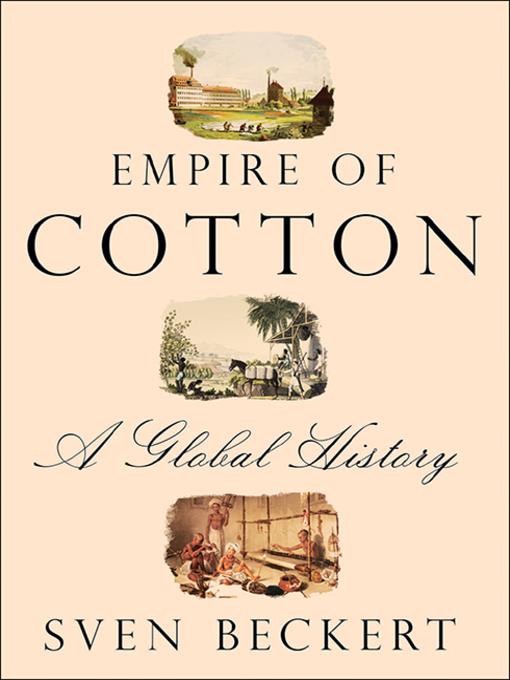
Empire of Cotton
A Global History
کتاب های مرتبط
- اطلاعات
- نقد و بررسی
- دیدگاه کاربران
نقد و بررسی

October 13, 2014
In his latest venture into capitalism’s past, Harvard University historian Beckert (The Monied Metropolis) has produced a hefty, informative, and engaging study of cotton. Beckert persuasively shows that nothing less than a global sweep can provide a complete understanding
of how the plant’s cultivation and its thread-to-cloth production affected the growth and development of economic, political, and social systems. He examines the changes wrought by thousands of years of cotton production in Africa, Asia, and the Americas, with Europe—and England in particular—a relative latecomer to the plant’s marvels. These developments prompted the rise of “war capitalism” in the 1500s, a stage of economic development rooted in the violence associated with forcible land and labor acquisitions. This was what the Europeans excelled at: violently intruding on global cotton networks, then using their newly acquired power to further dominate and exploit the system. Moving across several millennia and touching upon every corner of the globe, Beckert’s narrative skills keep the story of capitalism fresh and interesting for all readers, especially when he introduces individuals like the British merchant Samuel Greg and Georgia plantation owner James Monroe Smith, putting human faces on sweeping historical events. Illus.

White gold sparked an Industrial Revolution and the U.S. Civil War, which rippled worldwide. This isn't quite an economics textbook, but the story of cotton involves a lot of economic concepts, such as bills of lading and futures. Narrator Jim Frangione can't make international spindle count comparisons dramatic, but he makes business concepts understandable. At the same time, he relishes more interesting topics like family business dynasties. Listeners also will learn about the brutality and poverty spawned by capitalism and colonialism. The emphasis on business won't be to every listener's taste as the sheer mass of economic terms and concepts doesn't make for easy listening. However, Frangione ably delivers a solid primer on economics and capitalism. J.A.S. © AudioFile 2015, Portland, Maine

March 15, 2015
Until the dawn of the industrial revolution, the cultivation, processing, and weaving of cotton textiles was largely a local affair. Here Beckert (American history, Harvard; History of American Capitalism) argues that the growth and development of the worldwide cotton industry not only paralleled but, indeed, shaped the industrial revolution and laid the groundwork for the modern world economic order. In a dazzlingly detailed account of events from India to Egypt to the Americas, but mostly centered on cotton's epicenter in the mill towns of Manchester and Liverpool, England, the author argues that the cotton trade spurred technological and mercantile advances that fostered the colonial aspirations of several European nations. Contemporaneously, a new breed of global capitalists began to exploit large-scale organizations of labor, particularly through slavery and then sharecropping in the rural United States and through wage labor in urban centers. Narrator Jim Frangione is solid and engaging. VERDICT While exhaustively researched and persuasive, the book suffers from a numbing surfeit of statistical data and is recommended for scholarly and specialist audiences only. ["Though replete with numbers, graphs, and tables, this book is so well written that it should be valuable to both scholars and aficionados of history," read the review of the Knopf hc, LJ 11/15/14.]--Forrest Link, Coll. of New Jersey Lib., Ewing
Copyright 2015 Library Journal, LLC Used with permission.

























دیدگاه کاربران